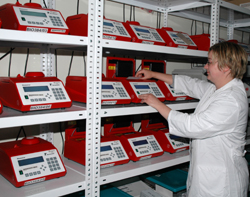Genetic susceptibility to inflammatory bowel disease
Scientists studied a cohort of 6,000 patients, recruited from general practitioners, who displayed general gastrointestinal symptoms. They also investigated a population based cohort of sufferers newly diagnosed with IBD. Additional cohorts included 400 patients with Helicobacter pylori positive gastritis and 400 more with hepatitis C, which acted as control groups. The investigation was based on the phenotype characterisation of the cohorts studied. Researchers gained greater insight at an individual level through studying genomic polymorphisms, expression and protein patterns, and phenotype characterisation. The GENETICS OF IBD team extended the existing database of phenotypic and genetic information. The characteristics of phenotypes were clustered and analysed to the same level of detail as information regarding molecular structure and function. The two most important cohorts were the 6,000 individuals with general gastrointestinal symptoms and the population based cohort recently diagnosed with IBD. The information gained was used to assess population based relative risks in relation to those established environmental factors which cause a predisposition to IBD. Logistical regression was used to determine the effect of these factors and to lay the foundation for a general risk model for the disease. A database integrated information concerning phenotype-genotype and expression and was used as a basis for further studies.







